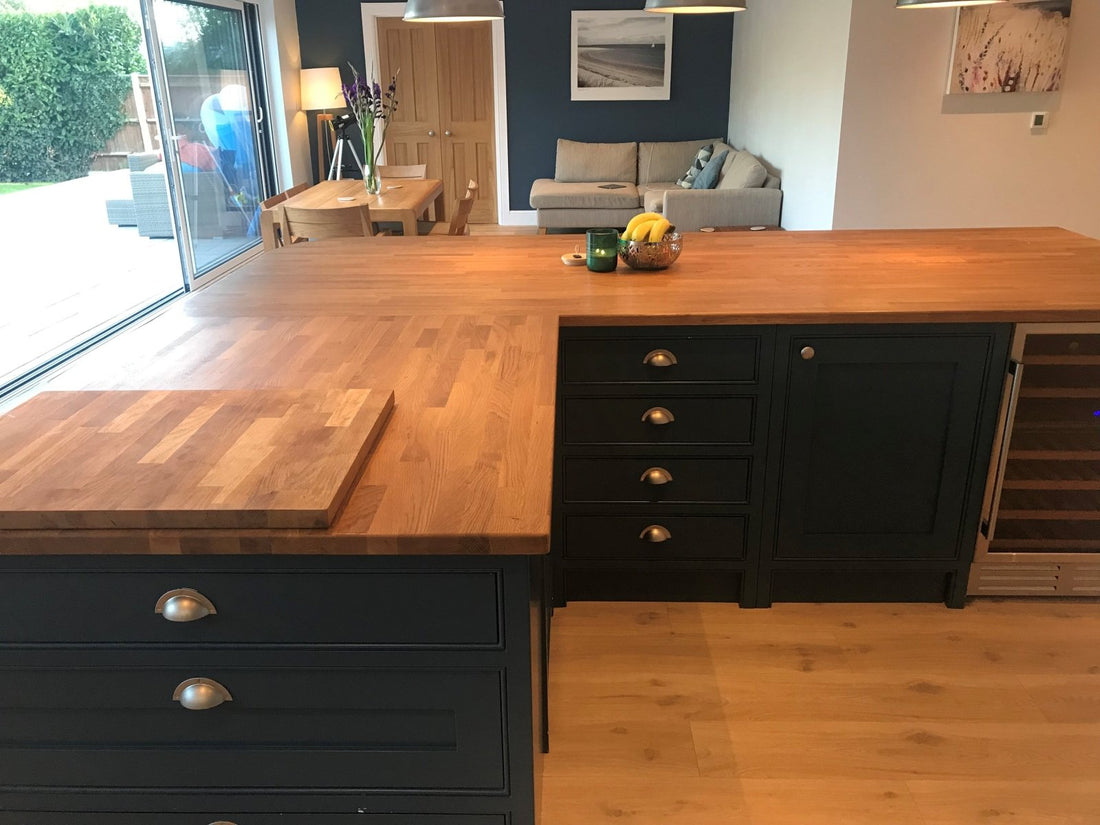
Benefits of wooden worktops in your kitchen
Share
When it comes to creating a warm and inviting kitchen, there are few things more inviting than a wooden worktop. Wooden worktops are a popular choice for homeowners looking to add a touch of natural beauty to their kitchens. They offer a timeless look that can complement any kitchen style, from rustic to modern. In this article, we will explore the benefits and considerations of using wooden worktops in your kitchen.
Benefits of Wooden Worktops:
-
Durability: One of the biggest benefits of wooden worktops is their durability. When properly cared for, they can last for decades. Unlike other materials, wooden worktops can be sanded and refinished to remove scratches and marks, restoring them to their original beauty.
-
Aesthetics: Wooden worktops offer a natural and warm feel to a kitchen that can be difficult to replicate with other materials. They come in a variety of wood types and finishes, allowing you to choose a style that fits your personal taste and complements your existing decor.
-
Versatility: Wooden worktops can be used in a variety of kitchen styles, from traditional to modern. They can also be paired with a range of materials, including stone, stainless steel, and glass, making them a versatile choice for any kitchen.
-
Hygienic: Contrary to popular belief, wooden worktops can be a hygienic option for kitchens. When properly sealed and maintained, they are non-porous and resistant to bacteria and mold.
Considerations for Wooden Worktops:
-
Maintenance: Wooden worktops require regular maintenance to keep them in top condition. They should be sealed with a food-safe finish to protect them from moisture and stains, and resealed as needed. They should also be cleaned regularly with a mild soap and water.
-
Cost: Wooden worktops can sometimes be more expensive than other materials, such as laminate or granite. However, their durability and timeless look can make them a worthwhile investment in the long run.
-
Susceptibility to damage: While wooden worktops are durable, they can be susceptible to damage from heat, water, and scratches. Hot pots and pans should not be placed directly on the worktop, and spills should be wiped up immediately to prevent staining.
-
Type of wood: Different types of wood have different properties and levels of hardness. Some woods, such as oak and teak, are more durable and resistant to damage, while others, such as pine, are softer and more susceptible to dents and scratches.
In summary, wooden worktops can add a touch of natural beauty and warmth to any kitchen. They offer durability, versatility, and a range of options to fit any style or taste. However, they do require regular maintenance and may be more susceptible to damage than other materials. If you are considering wooden worktops for your kitchen, it is important to weigh the benefits and considerations carefully to ensure that they are the right choice for you.
